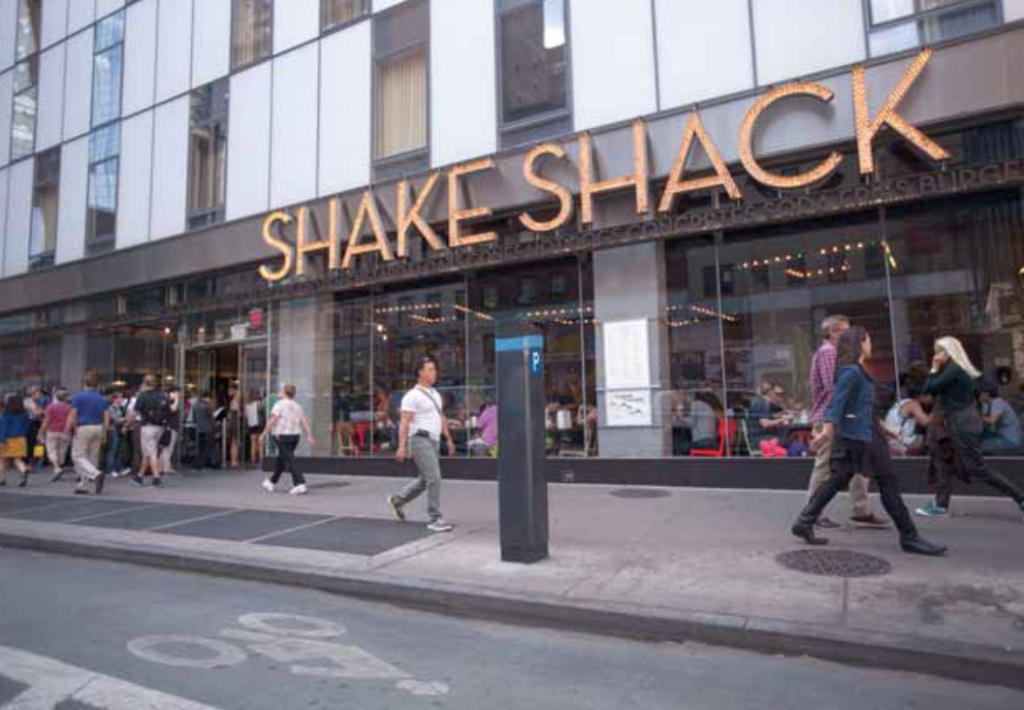
Investors seem willing to pay just about anything for a better burger. Half a dozen food chains have held piping-hot stock market debuts in the past year to meet a growing ap- petite for “fast-casual” restaurants catering to younger and more affluent diners willing to pay more for fresher, higher quality fare than they expect to find at traditional fast food places like McDonald’s.
Wall Street hopes the new crop of publicly traded eateries will replicate the success of Chipotle Mexican Grill, which has grown to about 1,800 res- taurants since its 2006 debut. With consumer spending showing signs of improvement and more diners keen on antibiotic-free meats and other healthy foods, now is a great time for restaurants in that niche, especially ones adept at building grass-roots buzz and loyalty, experts said.
But investors have pushed the shares of some of those restaurants – Shake Shack, Zoe’s Kitchen and Habit Res- taurants – to sky-high levels that imply growth expectations that may prove hard for the management to deliver.
Shake Shack – the big outperformer – is up 260% since it went public at the end of January. As a group, shares of established restaurant companies have outperformed the broader stock mar- ket exponentially, with the Dow Jones US Restaurants & Bars Index (which doesn’t include these newcomers) ris- ing 11% this year, compared with the Standard & Poor’s 2% increase.
Based on the number of locations open at the end of 2014, Shake Shack’s current stock price values its restaurants at $40mn each, four times the stock market value of a Chipotle restaurant and 15 times the value investors assign to a McDonald’s Corp restaurant.
Brad Lamensdorf, who co-manages the AdvisorShares Ranger Equity Bear ETF, said he would short Shake Shack’s shares, except that his broker has none left after lending his last at a stagger- ing 65% annual interest rate. At that rate, short sellers would have to pay out more than 5% of their investment every month while waiting for Shake Shack’s stock to fall, which may not happen.
“Just because a stock looks expensive doesn’t make it a great short. It’s way too expensive to borrow,” Lamensdorf said, adding it might become more feasible in July after insiders restricted following Shake Shack’s January IPO are allowed to sell their shares. Almost 40% of Shake Shack’s shares are currently short-sold.
Lamensdorf is also shorting Chipotle, betting that the company’s
expansion is about to lose steam. Chipotle is down 7% so far in 2015. An- other fast-casual chain, Buffalo Wild Wings, is down 13%, with investors concerned about slowing growth mo- mentum at both chains.
And some may already have lost their lustre: Shares of Chicago-based sand- wich chain Potbelly Corp more than doubled in their first trading session after its IPO in 2013. But since then, the company’s growth has failed to impress investors and its stock sells now for about a dollar more than the $14 a share it fetched when it first went public.
More fast-casual restaurant IPOs
are in the works. Nashville, Tennessee- based J. Alexander’s Holdings Inc and Fogo de Chao, a steakhouse chain of- fering 20 cuts of meat in Brazilian-style tableside barbecue service, have both filed with US regulators for IPOs.
Habit, which opened in 1969 and is known in California for its charburg- ers, is up 120% since its November IPO. Zoe’s Kitchen, which serves Mediterra- nean cuisine with Southern hospitality, has doubled since its IPO in April 2014.
High prices for the newly listed stocks reflect a scarcity of high-growth restaurants to invest in as well as Wall Street’s confidence in companies’
management teams, said Piper Jaf- fray analyst Nicole Miller Regan, who has “overweight” ratings on Zoe’s and Habit and does not cover Shake Shack.
“Look at Chipotle. It’s not a burrito company, it’s an ATM,” Miller Regan said. “I don’t care what cuisine you put through there – it’s a phenom- enal return.” Shake Shack’s PEG ratio (price/earnings over its expected next year’s growth – a measure of a stock’s value that accounts for expected profit growth), is 156 compared to 1.6 for Chipotle. Lower PEGs suggest cheap- er stocks. Zoe’s PEG is 2.5 and Habit stands at 4.6. By comparison, Inter- net giant Twitter has a PEG of just 0.8, suggesting it is well priced for its ex- pected growth.
Habit, Zoe’s and Shake Shack de- clined to comment on their stock valu- ations.
To justify its recent stock price, Shake Shack would need to establish more than 400 company-run or fran- chised restaurants within about five years, estimated Georgetown Univer- sity business professor James Angel.
With a new location in Austin, Texas, Shake Shack now has 68 restaurants in the US and other countries; it has said it plans to open at least 10 domestic locations annually and expand abroad.
Shake Shack, which says its key to success is a culture of “enlightened hospitality,” is a master of word-of- mouth marketing. It has more than 1,800 Instagram followers for every $1mn spent across its locations, com- pared with 11 for McDonald’s Corp and 60 for Taco Bell, a fact that Goldman Sachs has cited as helping build loyalty among millennials.
Habit on Thursday posted March- quarter revenue above expectations but its full-year revenue outlook was shy of consensus, according to Thomson Reuters I/B/E/S. Shake Shack posts its quarterly results on May 13. “Do they have a unique value proposition with their customers? Yes. Is it hard to rep- licate? Yes,” said Bob Goldin, Executive Vice President of food services consul- tancy Technomic.
